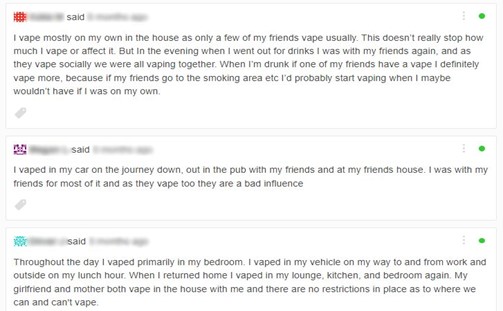 Diaries are thought to have existed in some shape or form since the Egyptian pyramids were being constructed. The diary of Merer is considered one of the earliest known examples, a crucial source for understanding ancient Egyptian society, governance, and monumental architecture.
Diaries are thought to have existed in some shape or form since the Egyptian pyramids were being constructed. The diary of Merer is considered one of the earliest known examples, a crucial source for understanding ancient Egyptian society, governance, and monumental architecture.
Fast forward 4,500 years and participant diaries are a long-term staple in the qualitative research toolkit. They keep on delivering even in a simple, cost-effective format. They can provide detailed, content-rich and more accurate insight than ‘standard’ focus groups and interviews alone – and unearth new insight.
Data on behaviours, perceptions, experiences, and more sensitive topics can all be enhanced using diaries as participants respond in their natural environments, leading to more thoughtful and authentic feedback. Furthermore, video and photo diaries can provide extremely rich data on emotion, context, and surroundings.
 One of the key advantages of diaries is their ability to reduce recall bias, encouraging participants to document their behaviours and thoughts closer to the moment they occur, for example when out and about or travelling (for research into public transport use). This not only provides more accurate data but also allows participants to engage in self-reflection.
One of the key advantages of diaries is their ability to reduce recall bias, encouraging participants to document their behaviours and thoughts closer to the moment they occur, for example when out and about or travelling (for research into public transport use). This not only provides more accurate data but also allows participants to engage in self-reflection.
Diaries can also lead individuals to share insights they might otherwise withhold or overlook in a group setting or face-to-face interview, with the added benefit of eliminating the influence of other participants.
The very nature of completing a diary, even over a few days, can increase participants’ engagement with the research process.
We’re aware, of course, that there are things we need to get right when designing such a task. Not overburdening the participant, keeping it interesting, and making it worth their while financially. Plus, as with most research techniques, the Hawthorne Effect needs to be borne in mind – participants’ awareness of being observed or simply taking part in a study can influence what they do and what they choose to share. And naturally there will be occasions where a participant fails to engage fully or insists on giving the shortest answers possible.

On a recent study for Public Health Wales among people who wanted to quit vaping, participant diaries were an ideal tool for us to complement online focus groups and ensure we covered a very full set of objectives. We chose a dedicated online platform that was very simple for participants to use (paper format was on offer as well), suitable for bilingual topic posts (Welsh and English), and cost-effective given the limited budget.
The technique also freed up precious focus group time by covering off some topics in advance including those that did not really lend themselves to a group discussion.
We experienced great levels of engagement although it still required some gentle nudging from our patient Field team to encourage all to participate.
Insights included just how frequently some were vaping each day, where they vaped (including in bed, in the bath, on the way to and from the toilet at night!) and how incredibly convenient it was to do. Indeed some felt that they vaped more than they had smoked tobacco. There were also instances of participants reflecting on their diary entries – including wanting to be a better role model for their children – as a way of renewing motivations to quit.
So it’s good to know that we can still rely on this tool in its various formats – from simple text based responses to gathering rich video content – to enhance the more commonly used approaches to qualitative research.
